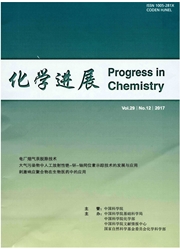

 中文摘要:
中文摘要:
单细胞水平的生物物理特性表征,可有效阐明细胞的功能和状态,揭示细胞的单体差异性,对于细胞的分化和病理研究,以及疾病的早期临床诊断和治疗具有非常重要的意义。由于具有与细胞尺度相匹配的微米级腔道,微流控芯片比传统生化方法更适合单细胞样本的微环境精确控制、高通量定向操纵及多参数非特异性检测,已成为单细胞表征与分析的一项重要技术平台。本文总结了基于微流控技术的单细胞生物物理特性表征方法及其应用的最新进展,着重分析微流控芯片在常规方法难以达成的单细胞和高通量研究中的独特优势,最后探讨了微流控单细胞生物物理特性检测芯片在临床应用中面临的挑战和未来的发展动向,并提出一种新型的单细胞多参数同时表征的微流控分析器件。
 英文摘要:
英文摘要:
Single-cell biophysical characterization has been widely employed for demonstrating the physiological activity and status of individual cells, or revealing the heterogeneity among various populations. It also plays an important role in the studies on cellular differentiation and pathology, as well as early clinical diagnosis and treatment. Compared to conventional biochemical schemes, the feature of scale compatibility between cell and microchannel makes microfluidics more suitable for precise microenvironment control, high-throughput manipulation, and multi-parameter label-free detection of individual cells. Therefore, microfluidics has become an important platform for single-cell characterization and analysis. This review covers the recent advances in microfluidics for characterizing the single-cell biophysical properties, and then focuses on the discussion of specific advantages, such as single-cell resolution level and high-throughput feature, offered by microfluidics. Finally, the challenges and future directions concerning the application of this scheme in clinical practices are also discussed, and a novel single-cell microdevice for multi-parameter characterization is proposed.
 同期刊论文项目
同期刊论文项目
 同项目期刊论文
同项目期刊论文
 An Immersed Boundary-Lattice Boltzmann Simulation of Particle Hydrodynamic Focusing in a Straight Mi
An Immersed Boundary-Lattice Boltzmann Simulation of Particle Hydrodynamic Focusing in a Straight Mi Lattice Boltzmann numerical simulation and experimental research of dynamic flow in an expansion-con
Lattice Boltzmann numerical simulation and experimental research of dynamic flow in an expansion-con High-throughput inertial particle focusing in a curved microchannel: Insights into the flow-rate reg
High-throughput inertial particle focusing in a curved microchannel: Insights into the flow-rate reg Light-induced electro-rotation: Microspheres spin in micro-manipulation using light-induced dielectr
Light-induced electro-rotation: Microspheres spin in micro-manipulation using light-induced dielectr 期刊信息
期刊信息
